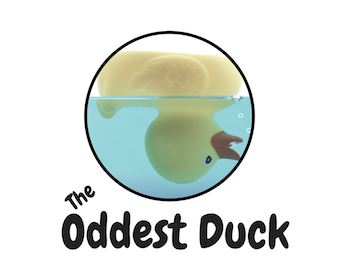In this blog series, I’ve talked about my experience with aspergers, explained in a general sense the physiological causes of autism, and finally, how the symptoms make it difficult for those with ASD to get the help they need.
Since discovering I had aspergers in the mid-90’s, my journey has mostly been about putting my struggles in those terms; learning that my natural awkwardness is simply a part of who I am, and not some personal shortcoming. Lately, I’ve sought to gain a deeper understanding of the topic. I’ve been surprised and saddened.
I was lucky. Born into a stable family with two loving parents, I always had a safe place at home, where I was allowed to grow at my own, slow pace. It helped that my special talent with computers happens to be something valuable in today’s society, allowing me to have a successful career. Top that off with a beautiful, loving wife and three awesome kids, and there’s nothing to feel sorry for me about.

It’s not that way for many who grow up on the spectrum.
For every breakout nerd on the spectrum in Silicon Valley, there are far more who aren’t so lucky. Their lives are ruled by loneliness, depression and hopelessness. A few become suicidal. Many find themselves stuck in low-paying, menial jobs they’re unable to keep for long. Some are never able to live independently. Too many become lost in the system. And they don’t have to be.
For most on the spectrum, ASD doesn’t have to ruin their lives. I’d like to end this blog series with a few things we can all do to help.
Be a mentor
There’s no better way to help someone on the spectrum than being with them, paying attention, and giving guidance on how to handle situations. Modeling it for them. Coaching them. This is especially true for adults on the spectrum; using our personal experience, we can mentor children so they don’t have to go through what we did.
Be a protector
I have mixed feelings about The Big Bang Theory, Sure, it’s nice to have people like me headlining a popular sitcom; but to be honest, the caricatures of the four nerds is the closest I get to personally understanding the concept of “cultural appropriation.” That being said, I do love how the other characters become protective of Sheldon in the outside world, no matter how frustrated they are at him in private. This involves not only protecting them from bullying behavior, but also, noticing when they’re being left out.
Just because we don’t overtly show our feelings, doesn’t mean we don’t have them.
Be blunt
The tendency, at least in the U.S., is to spare others’ feelings by not being direct. By giving subtle cues we hope to make our feelings obvious to others. They’re often hard for “normal” people to pick up; imagine how difficult that can be for those of us on the spectrum. Being blunt and specific about how you’re feeling helps. Make sure there’s no misunderstanding your words, and answer their questions without anger.
Seek a diagnosis
If you think your child might have some form of autism, the best thing you can do is get a diagnosis. Not all people who “seem” autistic actually are; but if you know, there are tons of resources to help you understand how to be a better parent to them, and most schools will provide some form of aid.
A common resistance to this is not wanting your children to be labeled, which leads to my final point:
Don’t use autism as a slur
I’ve got an awesome, self-deprecating sense of humor. I’ve probably used the cliches to describe my behavior more than anybody else, and I’m quick to laugh at myself. But the reality is, stereotypes can be harmful. Just like it’s not right make fun of a homosexual for “acting gay”, we shouldn’t belittle others for being socially awkward or different. We can learn to mimic proper social behavior, but
Thank you for reading this series.
Other posts in this series:
Part 1: Aspergers, Autism and Me


2 Comments
Ugly Baby Animals – Understanding Autistics – The Oddest Duck
Jun 12, 2017
Actually Autistic Blogs List
Nov 19, 2019